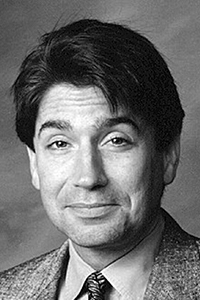Todd McDiarmid, MD, holds advanced certification in family medicine and geriatrics. He practices at the Cone Health Family Medicine Center.
Our changing memory is a normal part of aging. Just as we have different amounts of reserves in our body that help us cope with aging or illness, we also have different amounts of memory reserves that help us deal with the same changes. These memory reserves are built from natural memory abilities, our education and our mental activities earlier in life. The larger the memory reserves we bring to old age, the less our memory will likely trouble us.
Our memory is a made up of different parts for making, storing and finding memories. Aging changes can vary from being barely noticeable to obvious. The good news is that growing older does not affect some types of memory. We preserve a part of our memory that remembers facts about the world. For example, we continue to remember and add new facts about our world, like “John Kennedy was a US president.” and “Donald Trump is the current US president.”
Possibly the most common aging memory concern is remembering proper nouns and peoples’ names. This tip-of-the-tongue experience is when we know we know the name of someone or something but can’t remember it. Or trying to tell a friend about a new restaurant. We can recall its location, that it started with an “R”, and the wonderful grilled sandwich and soup you had there, but the name remains elusive.
Our working memory and speed of making memories decline over time. Working memory keeps information in mind for seconds to a couple hours so we can do something with it. Our processing speed is the pace it takes us to understand and respond to new information.
Our episodic memory is involved with memories of daily life. Decline in this type of memory can make it hard to recall what we had for breakfast or our first bicycle or the sequence of events from our child’s wedding day. These problems are frustrating so what can be done?
Because memory decline is such an accepted part of aging, older adults believe society’s stereotypes of older folks’ memory inevitably worsens until they become demented. In fact, research has shown that those who disbelieve this old age tale tend to have better memory abilities than those who believe them. Interestingly, this means our worrying about our aging memory may actually contribute to its worsening.
Instead of trying to restore our youthful memory through brain games and potions, we may want to concentrate on utilizing the strengths of aged memory. Memory experts are changing how they look at aging memory, seeing our memory as transforming from the fast paced, focused memory of youth to a broader “big picture” view that comes with experience. What was seen as a problem is now a gift where a slower approach allows the older adult to draw on old skills, knowledge and experiences to explore creative approaches to life. This release from the demands of coping with large amounts of information quickly, allows us to be more thoughtful, insightful and creative. Opening up to a new challenge, some turn to the arts and nature, others to sports and hobbies, travel and exploration or volunteering services.
Memory fitness activities
There is no effective memory supplement to slow or prevent memory decline. Claims for the beneficial effects of brain games are often exaggerated. While we may get better at playing these games with practice, there is no convincing evidence that they improve memory in everyday life. Your time would be better spent in physical activities, like walking or playing golf, and in socializing with friends and family. Our memory responds to the same principles of a successful, healthy life: to love, to work, to play and to service.


